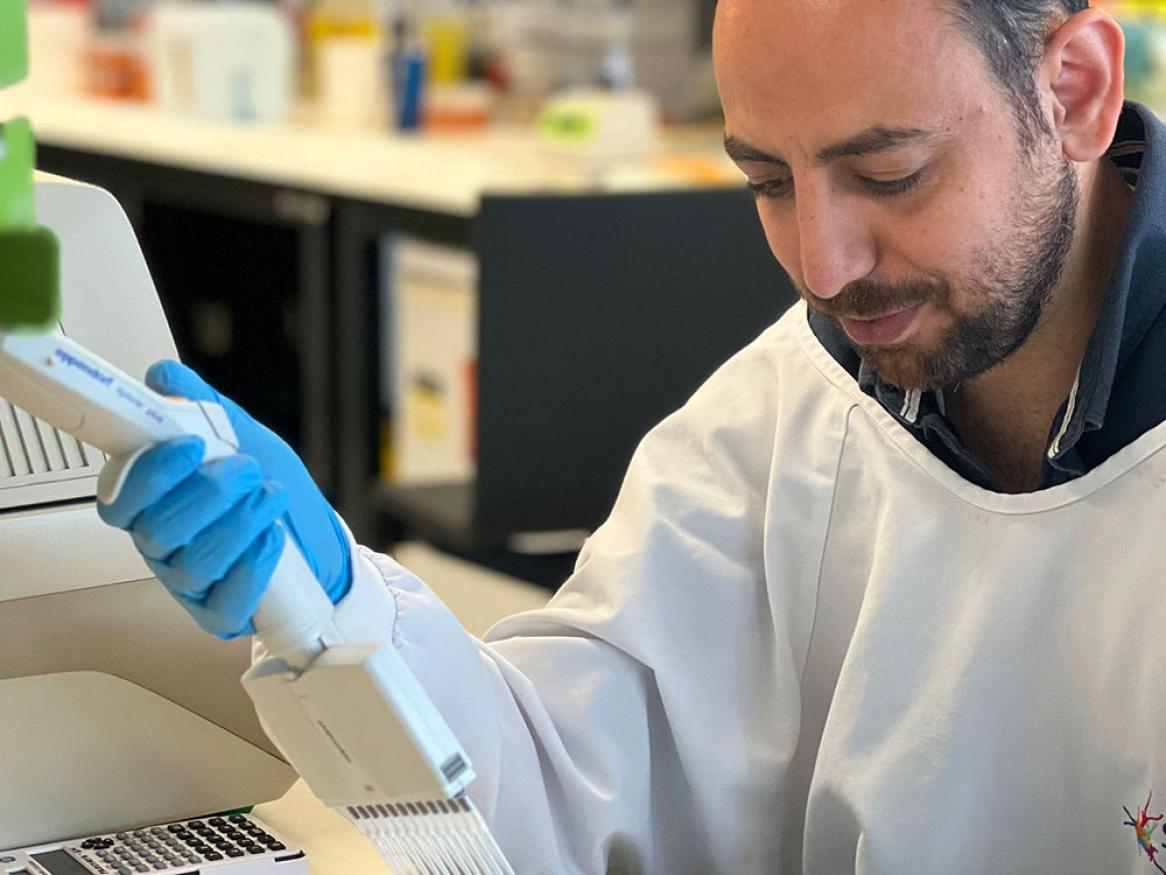From Biobank to breakthroughs
The Australian Lions Childhood Cancer Research Foundation (ALCCRF) has made a transformative impact on paediatric brain cancer research by donating $600,000 to a team at the South Australian immunoGENomics Cancer Institute (SAiGENCI).

Professor Jordan Hansford, Dr Noralyn Manucat-Tan, and Amanda Luck in the Paediatric Neuro-Oncology laboratory.
Paediatric brain cancer is the most common solid tumour in children and the leading cause of disease-related death among Australian kids. While aggressive multi-modal treatments have boosted survival rates to over 70%, these treatments often come with severe side effects that affect survivors to varying degrees, potentially having a long-term impact on their physical abilities, school performance, job prospects, and social lives. Unfortunately ~60% of survivors are unable to achieve independence as adults.
There are no strategies to reduce these impacts that do not compromise cure rates underscoring the need to develop new solutions that ensure children with brain cancer have optimal survival and survivorship outcomes, while also maintaining their physical and psychosocial wellbeing.
We know very little about why the treatments affect some children more than others, but Neuro-Oncologist Professor Jordan Hansford and his team are aiming to answer this question using South Australia’s first Paediatric Brain Tumour Biobank, established and operated between the South Australia Health and Medical Research Institute (SAHMRI) and the Women’s and Children Health Network (WCHN).
With new advances in molecular biology the team will further investigate brain cancers, revealing the underlying cause of the disease and beginning to balance the risks of different treatments more effectively to perhaps prevent late effects. The biobanked brain tumour samples combined with detailed clinical data provide a powerful population-based tool to study brain cancer, and the team will use this to uncover genetic and epigenetic factors that underpin the development of treatment side effects.
The ALCCRF Chair, Ron Skeen OAM said the Foundation recognised the significance of the Paediatric Brain Tumour Biobank and were attracted by the possibility to have a real impact on cancer care for children.
“We’re very excited about what the outcomes might be - it’s why we get involved.”
Professor Hansford expressed his gratitude for the support and his hope for what the project will achieve.
“We’re extremely thankful for the support of the Australian Lions Childhood Cancer Research Foundation, without whom this wouldn’t be possible.”
Understanding the mechanisms of late effects will lead to new approaches to designing clinical trials and treatments for all types of brain cancer to improve survivorship through a reduction in these late effects and toxicities associated with existing treatments.Professor Jordan Hansford
With this funding, SAiGENCI aims to ensure that children with brain cancer can look forward to a future full of possibilities, free from the limitations that cancer and its treatments can impose.
Professor Sweeney, Director of SAiGENCI stated, “Professor Hansford and his team are the ideal researchers to deploy the leading resources to reveal the new knowledge hidden in these precious tissue specimens which guide better care for children with brain cancers”.
Help make cancer history
100% of your gift will support leading-edge cancer research, which will lead to better outcomes for patients with cancer, and their families.
With your support, we can save lives.

